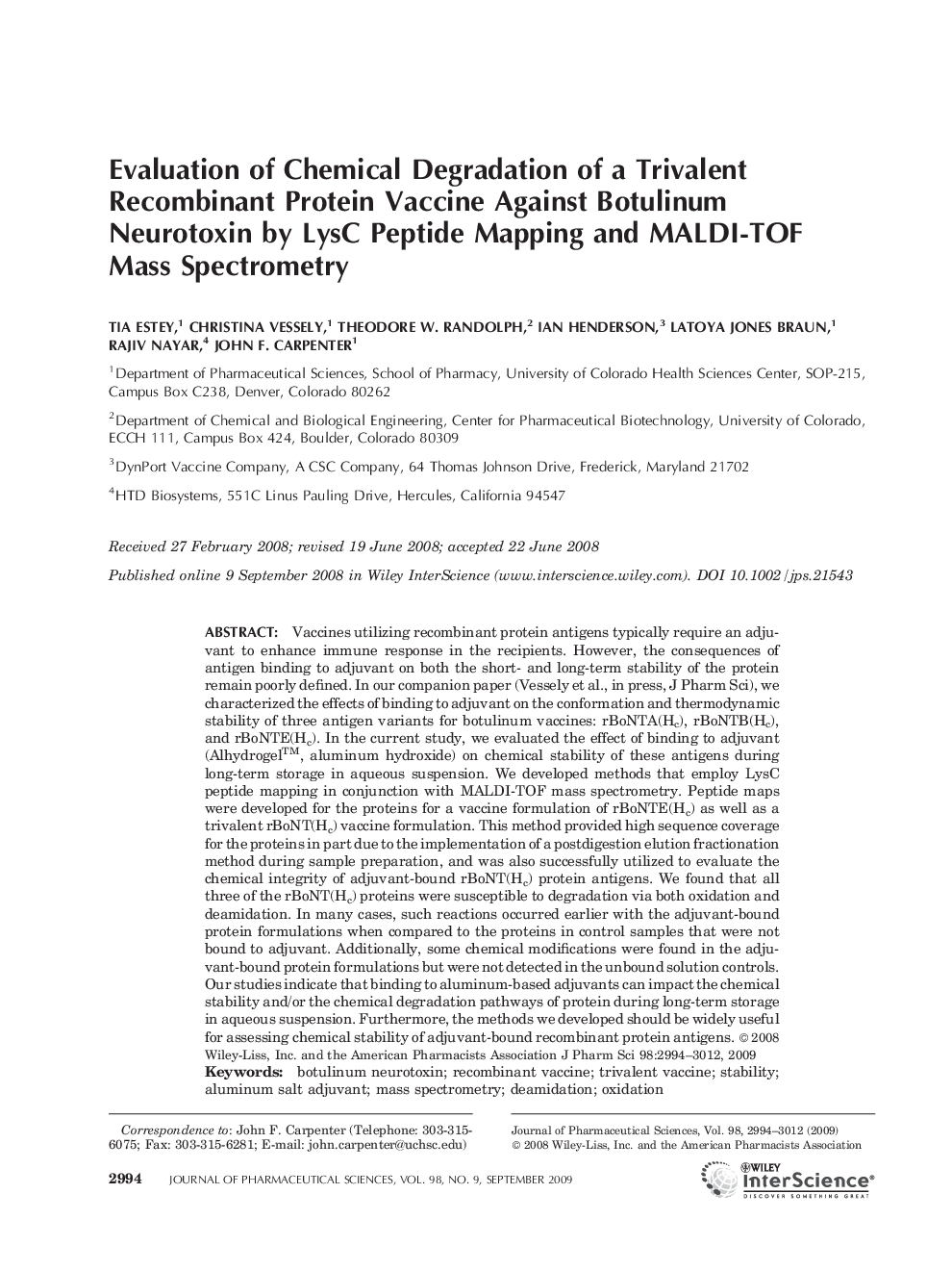| کد مقاله | کد نشریه | سال انتشار | مقاله انگلیسی | نسخه تمام متن |
|---|---|---|---|---|
| 2486817 | 1114395 | 2009 | 19 صفحه PDF | دانلود رایگان |

Vaccines utilizing recombinant protein antigens typically require an adjuvant to enhance immune response in the recipients. However, the consequences of antigen binding to adjuvant on both the short- and long-term stability of the protein remain poorly defined. In our companion paper (Vessely et al., in press, J Pharm Sci), we characterized the effects of binding to adjuvant on the conformation and thermodynamic stability of three antigen variants for botulinum vaccines: rBoNTA(Hc), rBoNTB(Hc), and rBoNTE(Hc). In the current study, we evaluated the effect of binding to adjuvant (Alhydrogel™, aluminum hydroxide) on chemical stability of these antigens during long-term storage in aqueous suspension. We developed methods that employ LysC peptide mapping in conjunction with MALDI-TOF mass spectrometry. Peptide maps were developed for the proteins for a vaccine formulation of rBoNTE(Hc) as well as a trivalent rBoNT(Hc) vaccine formulation. This method provided high sequence coverage for the proteins in part due to the implementation of a postdigestion elution fractionation method during sample preparation, and was also successfully utilized to evaluate the chemical integrity of adjuvant-bound rBoNT(Hc) protein antigens. We found that all three of the rBoNT(Hc) proteins were susceptible to degradation via both oxidation and deamidation. In many cases, such reactions occurred earlier with the adjuvant-bound protein formulations when compared to the proteins in control samples that were not bound to adjuvant. Additionally, some chemical modifications were found in the adjuvant-bound protein formulations but were not detected in the unbound solution controls. Our studies indicate that binding to aluminum-based adjuvants can impact the chemical stability and/or the chemical degradation pathways of protein during long-term storage in aqueous suspension. Furthermore, the methods we developed should be widely useful for assessing chemical stability of adjuvant-bound recombinant protein antigens. © 2008 Wiley-Liss, Inc. and the American Pharmacists Association J Pharm Sci 98:2994–3012, 2009
Journal: Journal of Pharmaceutical Sciences - Volume 98, Issue 9, September 2009, Pages 2994–3012